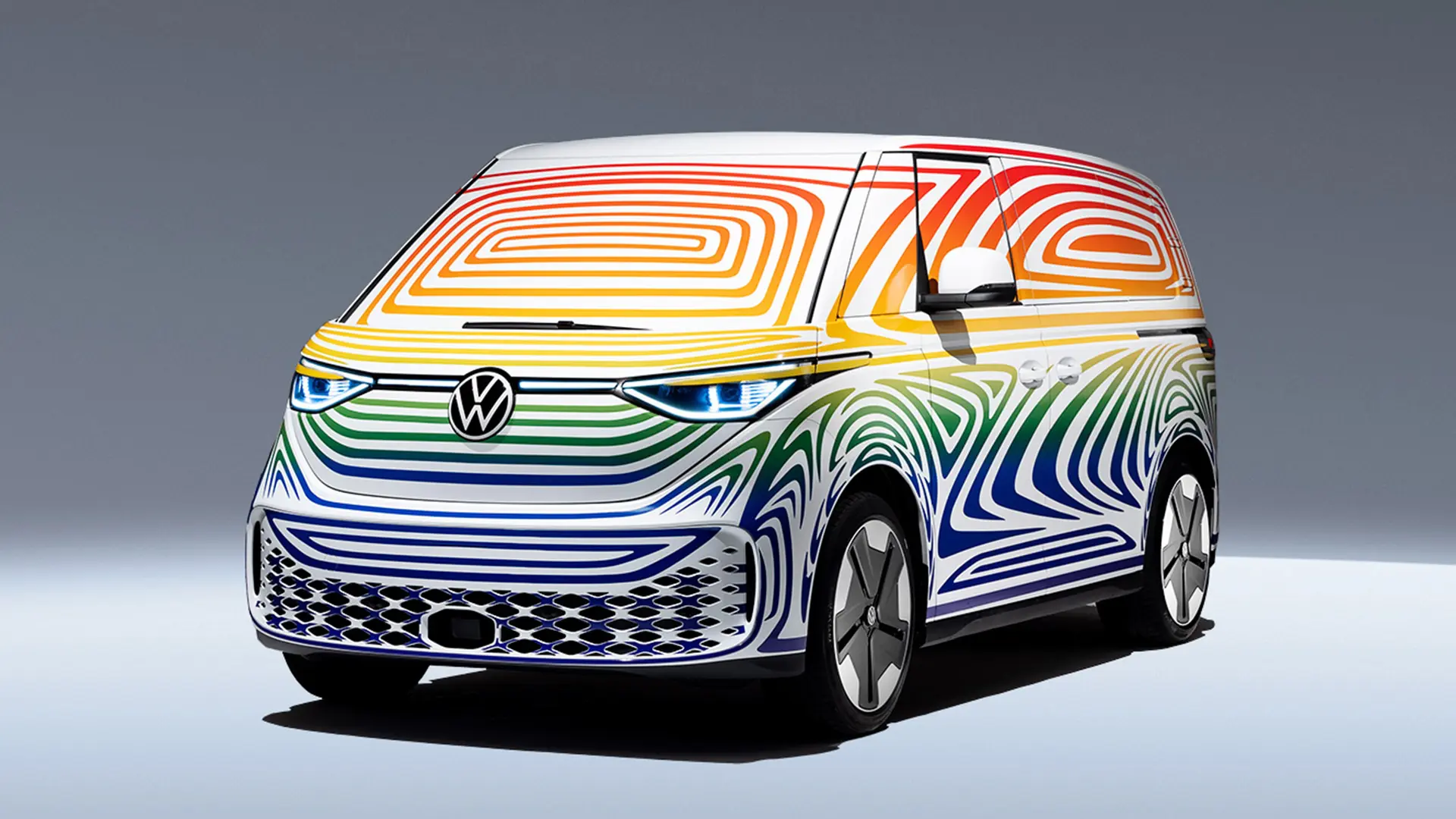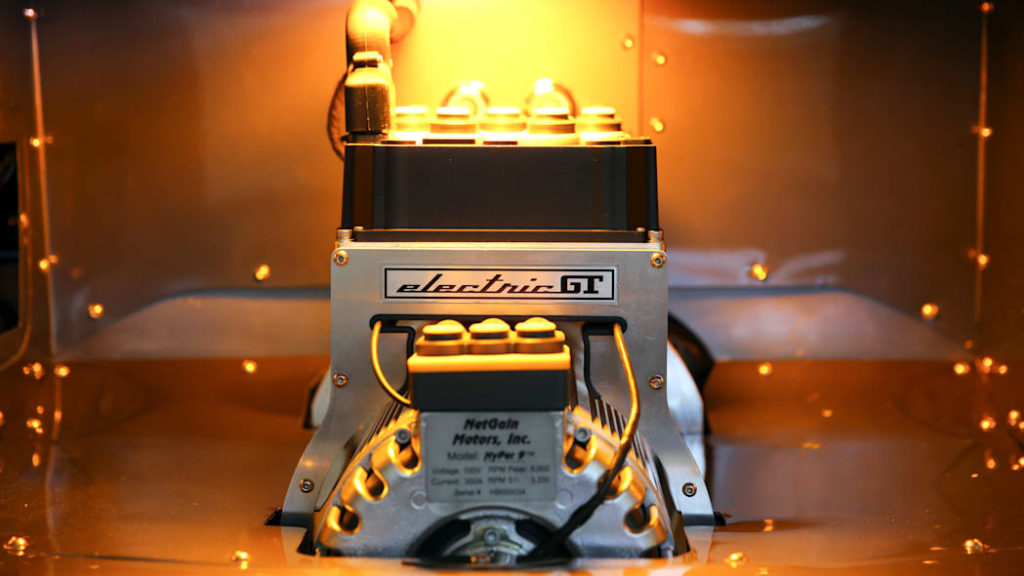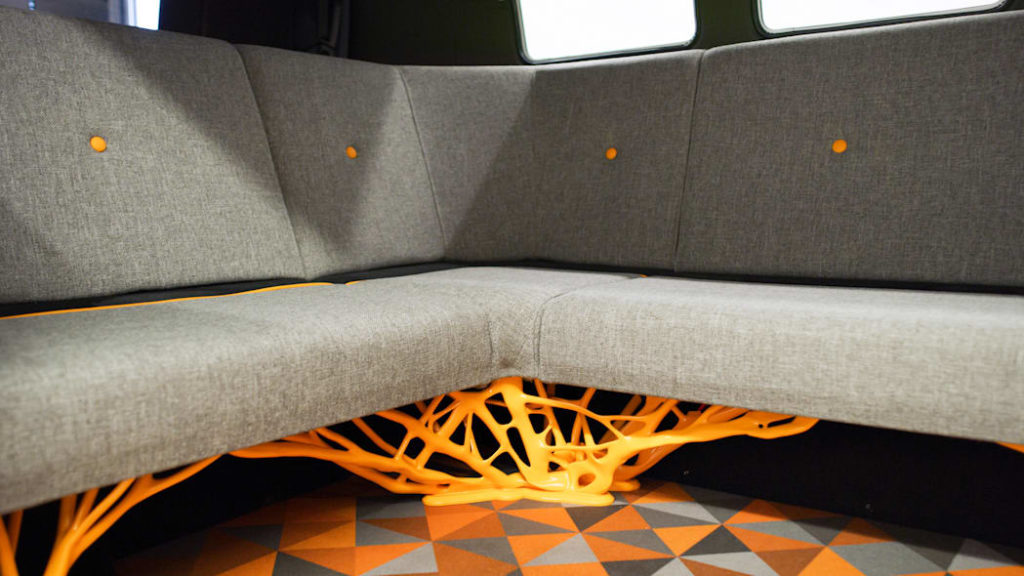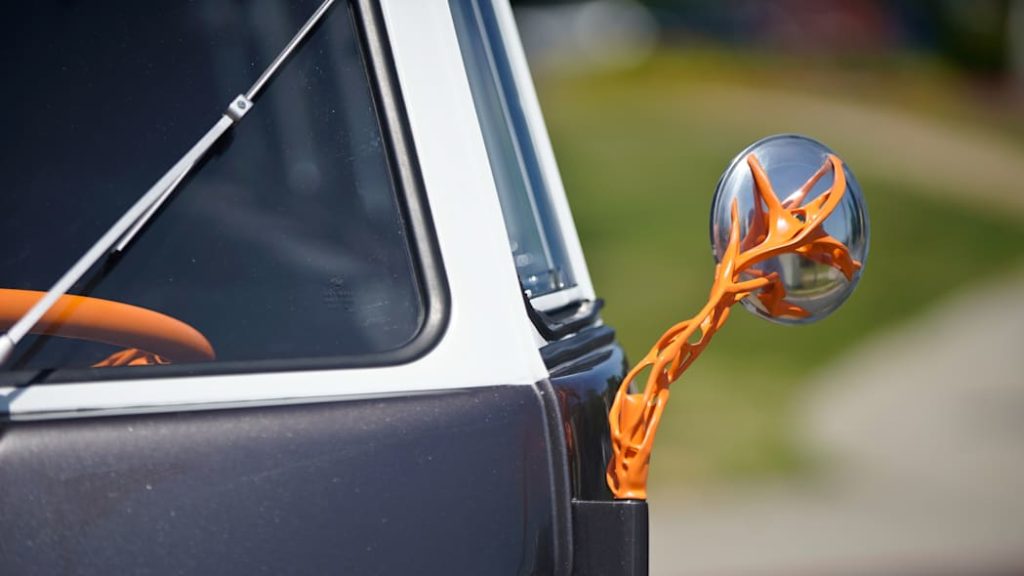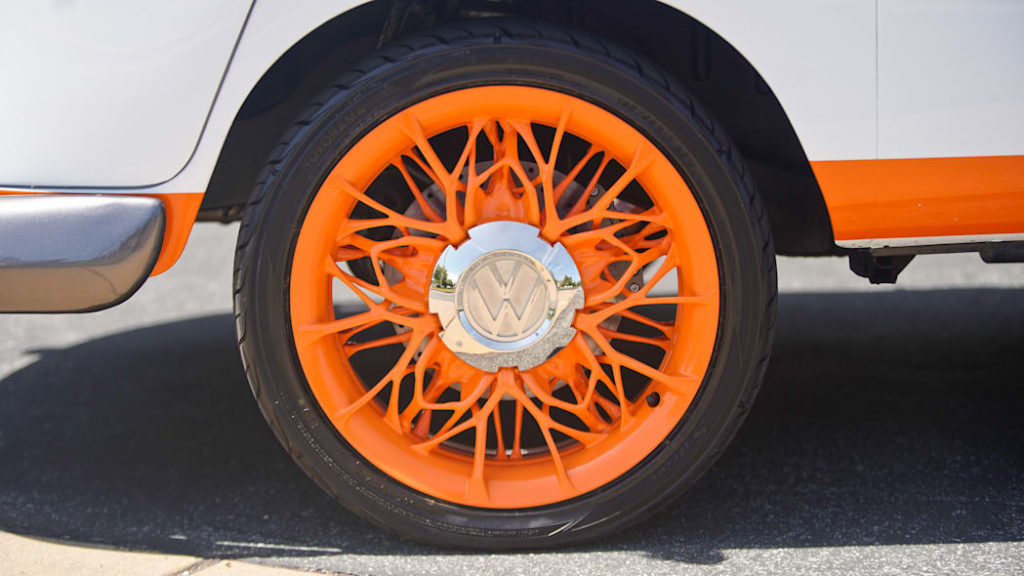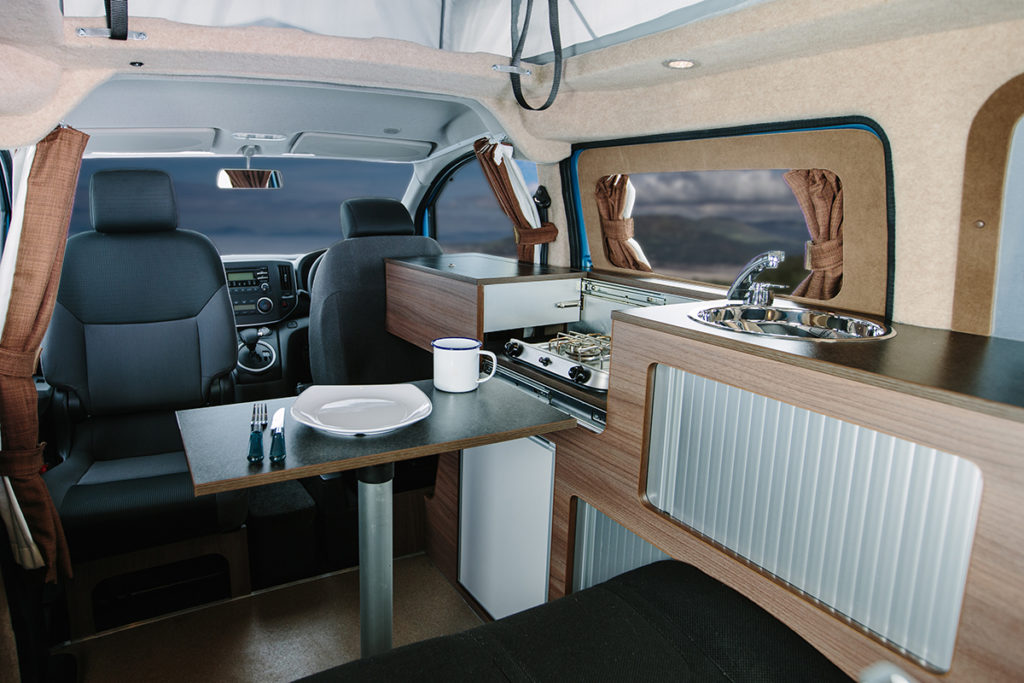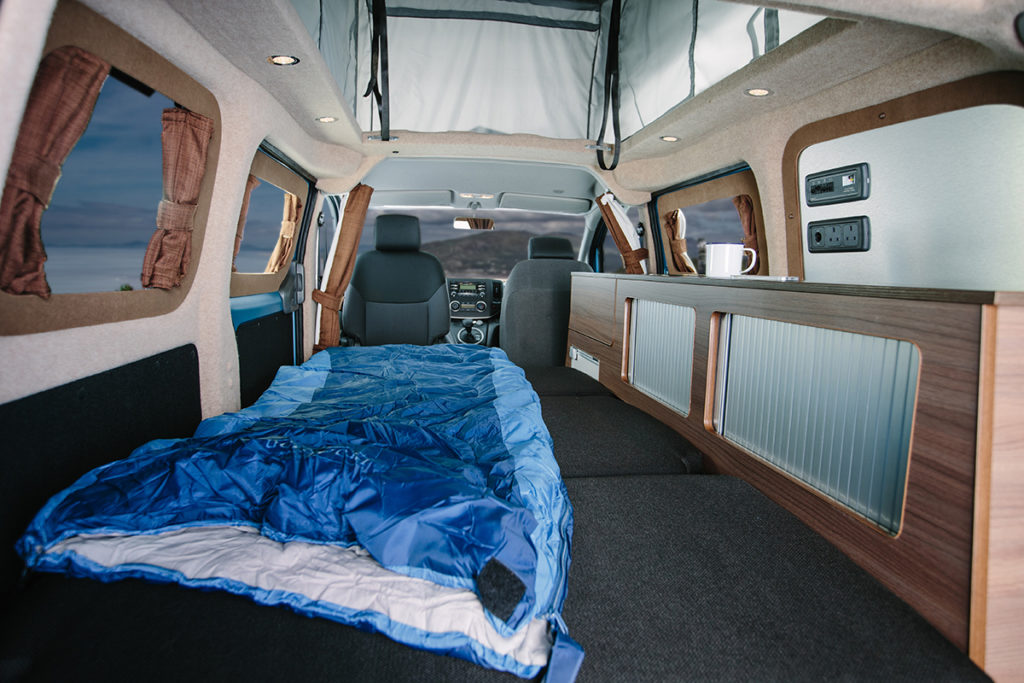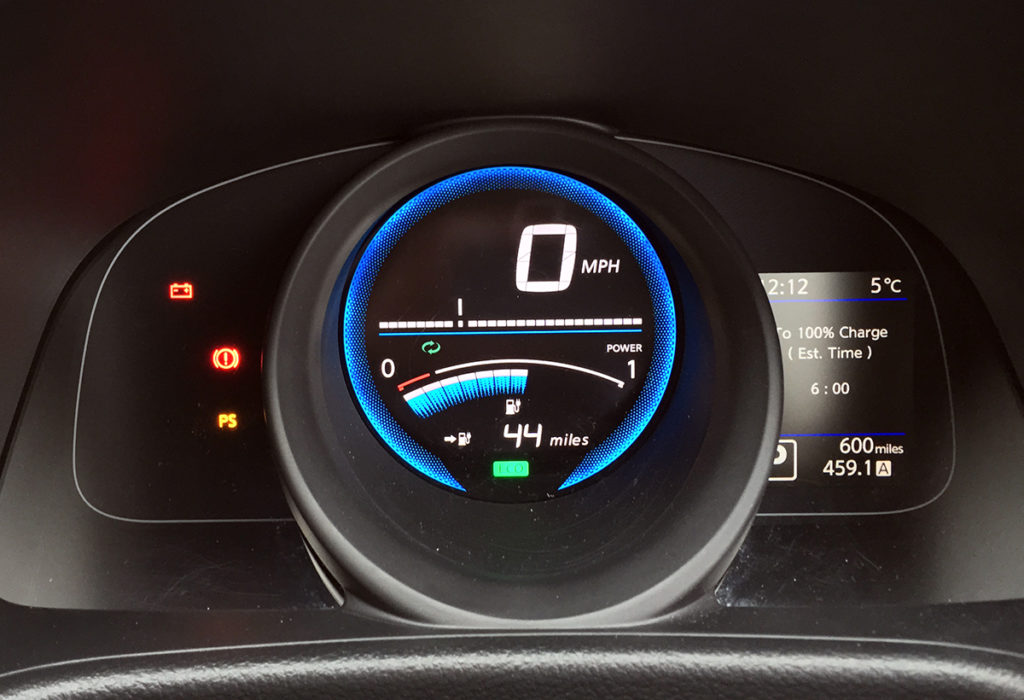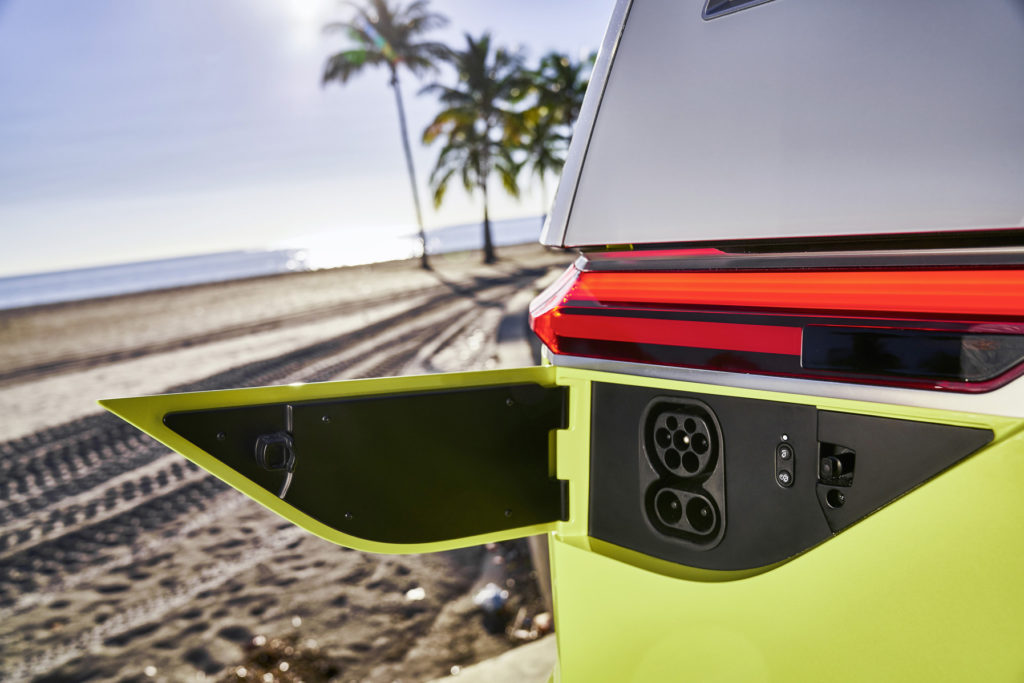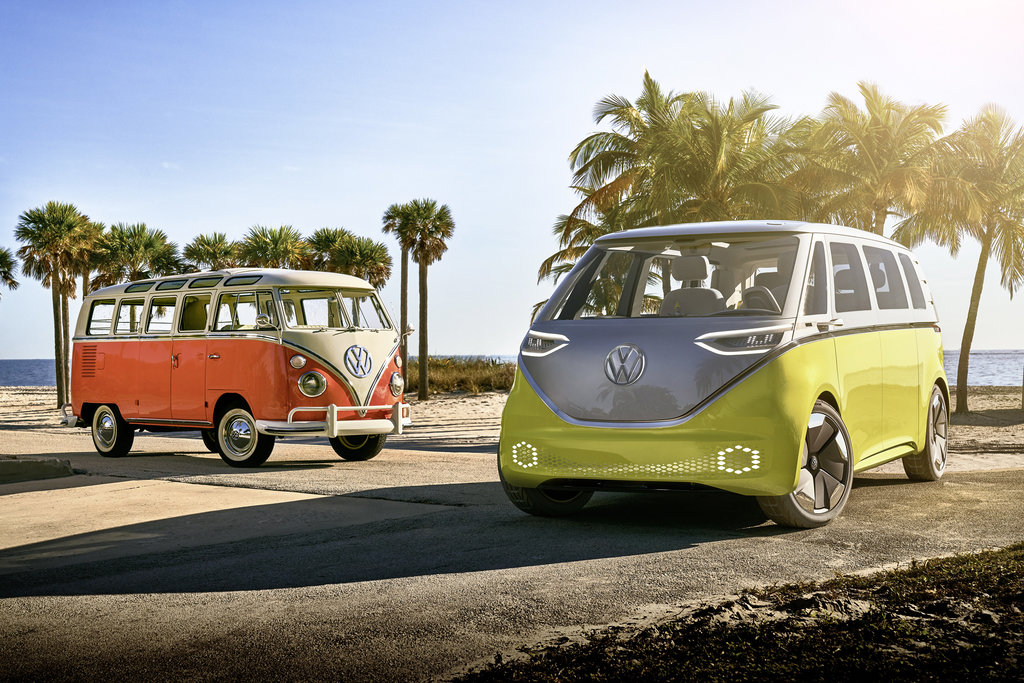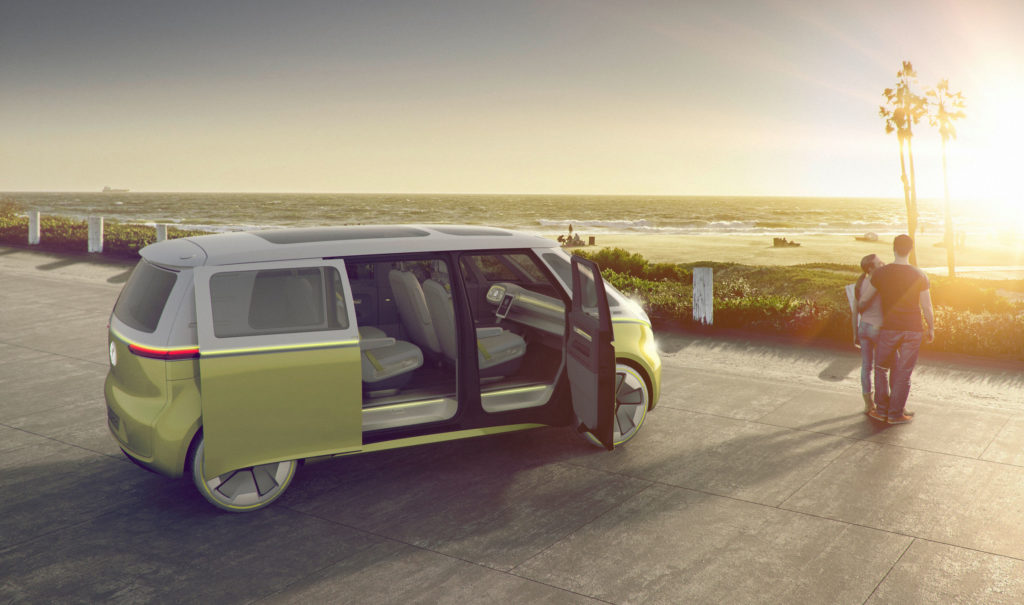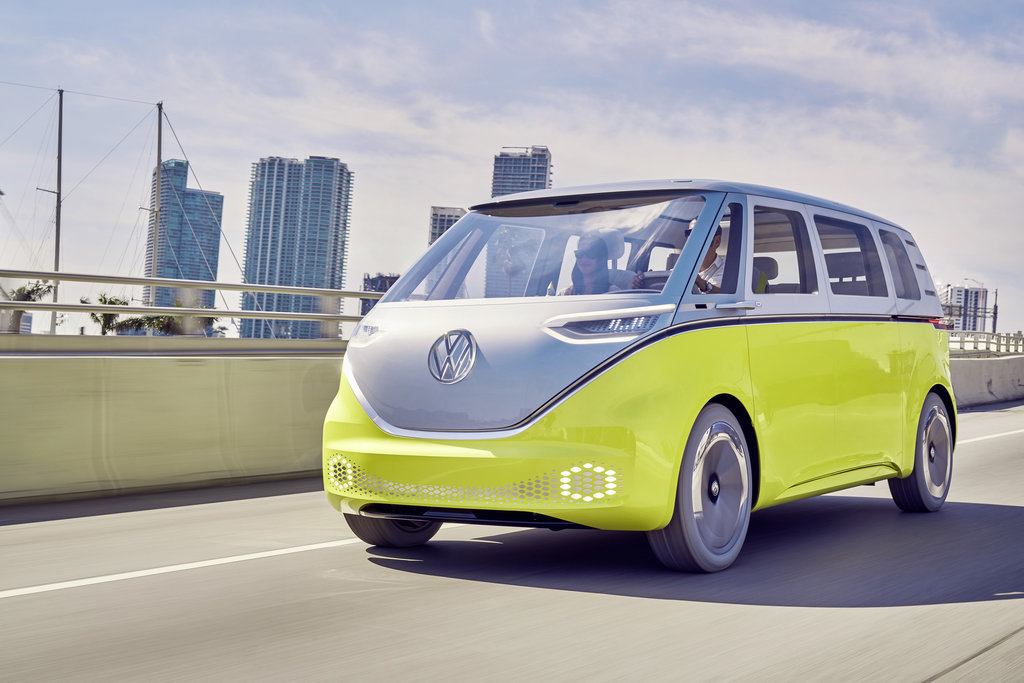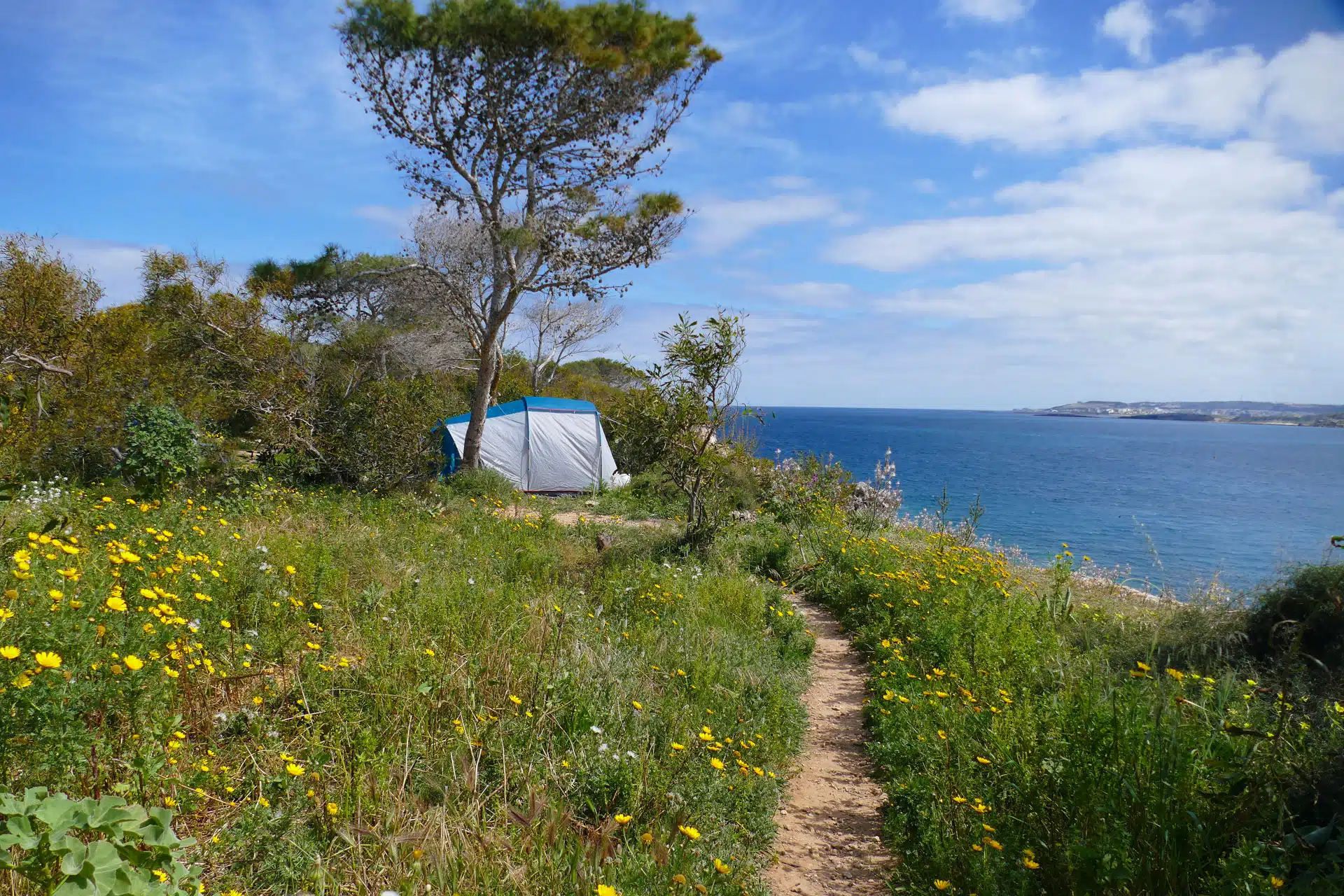With the Governments’ plans to ban sales of diesel and petrol vans by 2030, as well as abolishing sales of hybrids by 2035, there is increasing interest in eco-travel and growing pressure for the touring sector to become cleaner. With the UK plug in car grant and the benefits of zero congestion charge and no road tax, why wait? These sexy electric campervans are within reach for the digital generation and the space race for camper supremacy is on!
Touring Magazine pulls the diesel-guzzler into the short stay, embraces the revolution and asks, “do we ever need to look back?”
Do you love your motorhome, campervan, caravan or tent? Why not get the best in touring inspiration and the freedom it brings. Subscribe for free now!
Volkswagen Type 20
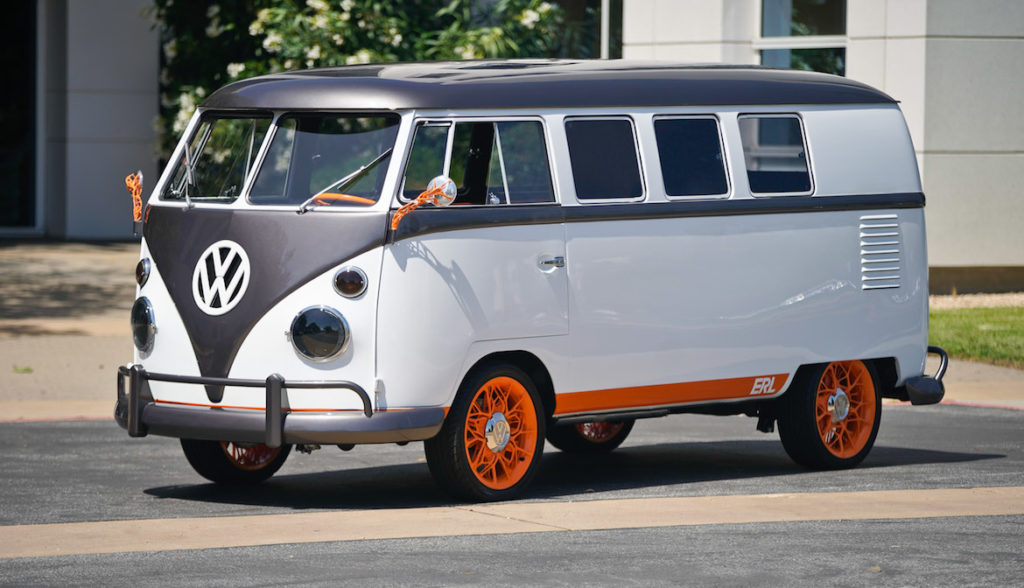
It’s a Vee Dub Camper. But electric.
That’s the start, but the Type 20 is more than just a sparked-up, retro plug-in.
Commissioned to celebrate the evolution of the company’s Electronics Research Laboratory into the Innovation and Engineering California (IECC), it’s based on the shape and style of a 1962 Microbus Type 2. But this electric campervan has more modern features than you can shake a surfboard at, including a holographic display, voice assistant and a biometric face recognition security system.
The design is super strong and lightweight with War Of The Worlds red weed inspired styling.
Being more Jeff Wayne than Geoff Capes, the T20’s 10kWh battery isn’t designed for the long haul and performance figures haven’t been given by the IECC. But this was never going to be about speed and range, VW is not planning to mass produce this bus. Keep reading as evolution comes quickly…
Nissan e-NV200 Electric Campervan by Sussex Campervans
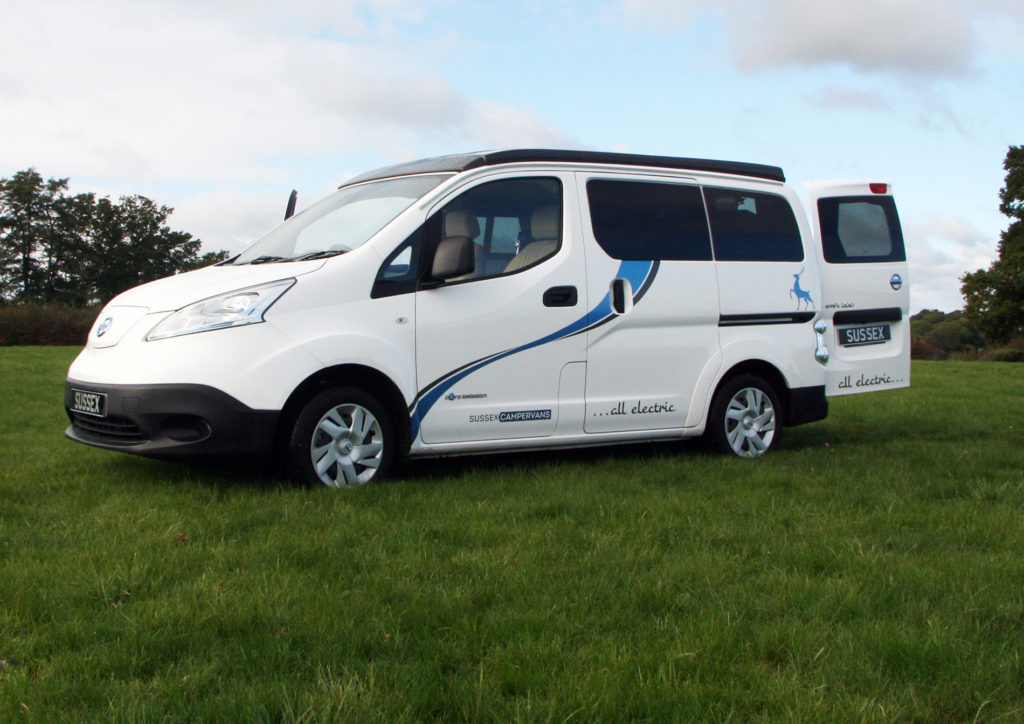
Based on the Nissan e-NV200, Sussex Campervans have created their all-electric campervan and we are seriously impressed.
The e-NV200 was a long-term project for the Horsham-based firm and they have succeeded in producing a practical true electric camper to rival the fossil drinkers in style, power and range. And all-electric means just that. Down to the installation of an induction hob cooker, no fuel tanks of any kind are needed in this van.
The base model was designed by Nissan as a city van, making it naturally agile and with a turning circle of only 11.1M, this would be equally equipped for those tight pitches or as a euro-camper negotiating the narrow streets of Paris or Rome.
Slimline it might be, but this camper has a generous amount of space inside making it a real leader in this field.
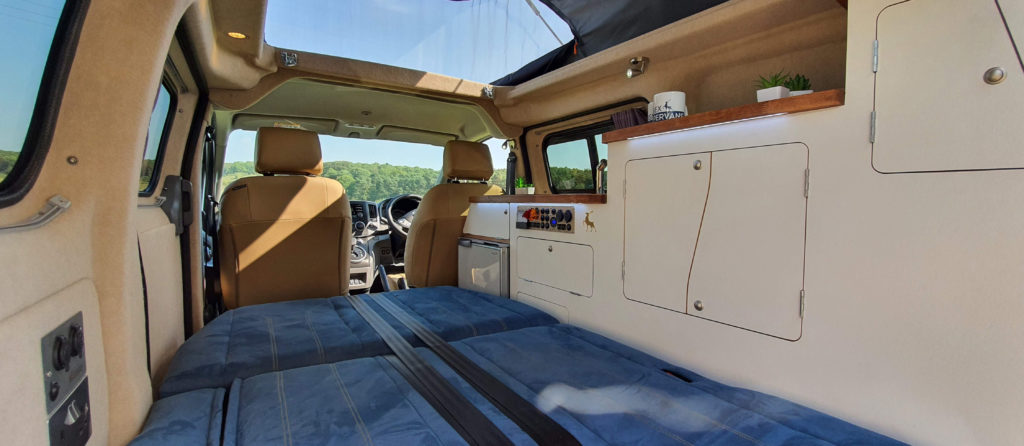
This e-NV200 is available as two or four berth, with a pop-top elevating roof and a choice of layouts, plus the vast upholstery range and custom options that Sussex Campervans offer.
The power source is 40kWh made of 4 lithium powercells providing 109HP. Batteries are stored low, so as not to eat into the usable space, also giving this electric campervan a low centre of gravity for secure and smooth handling.
Iridium E-Mobile Electric Motorhome
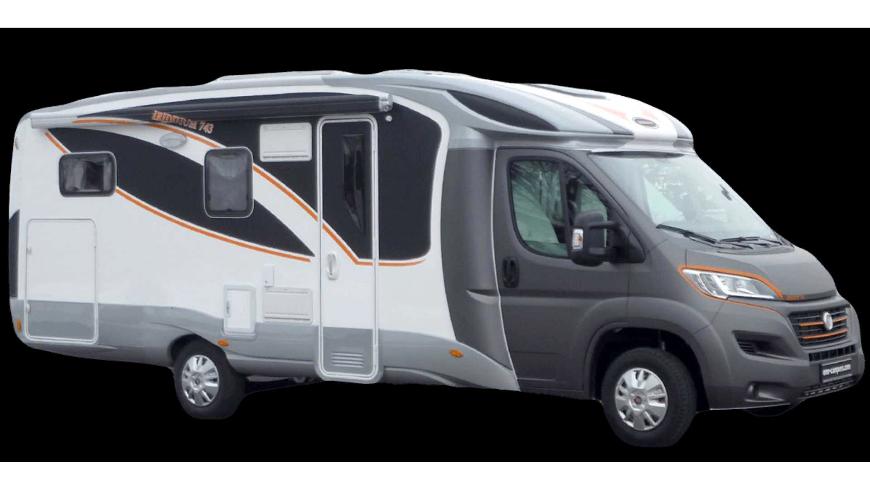
The biggest of the bunch, the E-Mobile from a consortium of German companies under the brand Iridium, is in its second generation and uses a 140kW powertrain from Stuttgart based electric vehicle company EFA-S, to deliver 188HP.
The generation 2 is based on a Mooveo motorhome, built on a Fiat Ducato platform and claims a range of 249 miles from its 108kWh battery pack.
The body is constructed by Maurer Fahrzeugbau, a Swiss maker of high-end coachbuilt motorhomes.
Featuring a dry bathroom and separate shower, kitchen and double bed. The dining area in the front can seat 5 people when you swivel the front cab seats.
With the cost to secure yourself one of these powerplants being reported at €200,000 this is no entry-level option and will likely appeal to the wealthier eco-warrior.
Dalbury E-Electric Electric Campervan
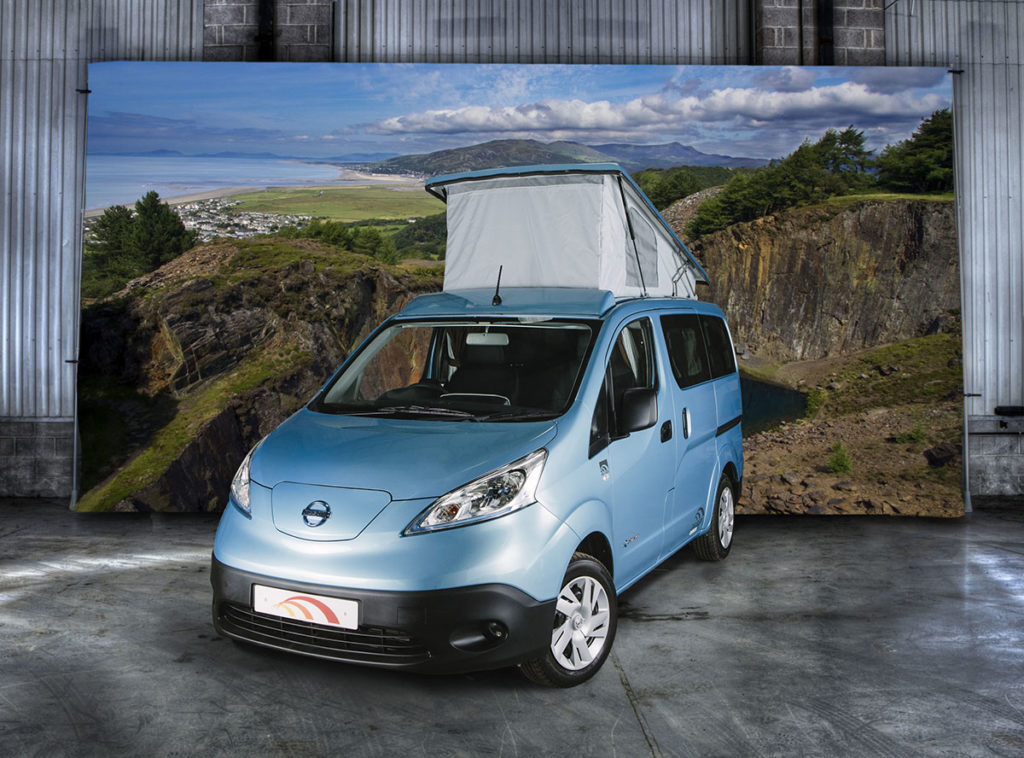
This e-camper by Hillside Leisure is also based on the Nissan e-NV200 and features the outstanding quality that we have come to expect from Hillside.
The interior craftsmanship is excellent and it’s full of clever, space-efficient design that makes all the difference in a camper of this size.
A swivelling front passenger seat and a rear seat-to-bed setup that can be positioned at any angle. And the side kitchen is super smart and along with a hob and sink is equipped with a 39 litre fridge.
The roof pops up effortlessly on gas struts gives much needed headroom and extra storage when stationary.
These electric campervans are suited to a single traveller or a couple. It would also make a perfect daily drive as well as a camper.
With a dedicated home charging unit installed for free, Hillside boast 80% charge in 30 minutes, 105 mile range and running cost of 2p per mile!
Volkswagen I.D.Buzz Electric Campervan
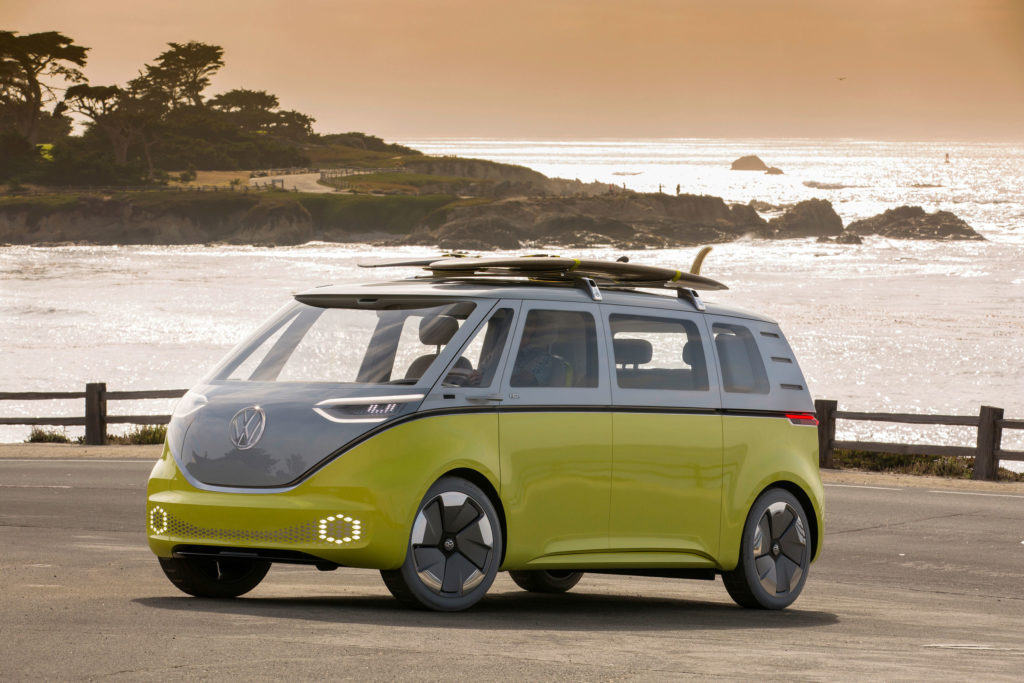
And we’re back again to finish where we started, with a concept from Volkswagen, although you’ll have to wait until 2023 to drive their new electric Microbus.
VW is no stranger to reimagining classics and the ID.Buzz, with space-age yet familiar styling bringing an iconic vehicle into a new era, is exactly how one would expect a futuristic electric campervan to look.
This is a full size van with colossal road presence sitting on 22 inch wheels.
Twin electric motors give an astonishing amount of four wheel drive power and it is was claimed that it will develop 369HP, with a 0-60 time of under 6 seconds. However, the latest prototype produces just 201HP Even more remarkable was the claimed 370 mile range, which has now been adjusted to around 250 miles – still not to be sniffed at!
The 10M turning circle is due to rear wheel steering and adaptive air dampers will give unrivalled levels of comfort to these electric campervans.
As Pistonheads, who have been lucky enough to drive the commercial van realisation of the ID.Buzz wrote “what really stood out was the refinement. The powertrain’s near total silence wasn’t surprising, but the continued hush as speeds rose was more unexpected – much quieter than a boomy normal van and with only slight wind noise disturbing the tranquillity.”
The floor is flat throughout, with the batteries and powertrains beneath, giving this van a massive amount of space and scope, leading to innovative interior design that Vdub call the variable space concept.
This could mean almost infinite versatility when it comes to custom retrofitting.
Vittra RV
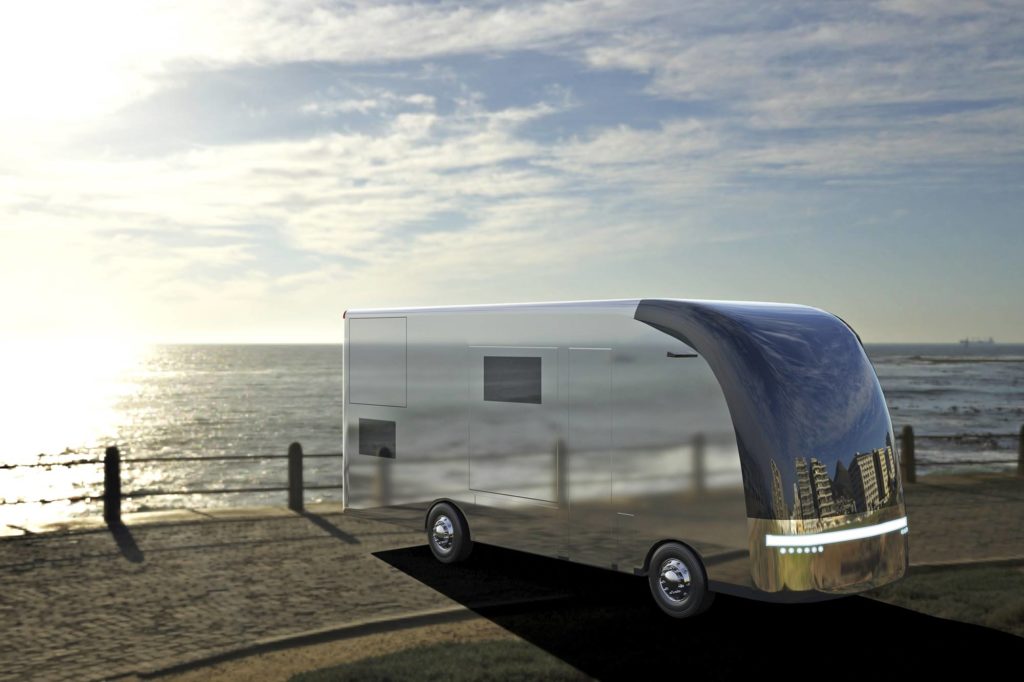
OK, so technically it’s the 6th electric motorhome in our Top 5, but this beauty is still in very early stages. Even if it is just a twinkle in the eye of the designers, the Vittra RV could well be a glimpse of things to come.
Vittra describe their mission as “to build the first RV using real XXI century technologies from the ground up: lightweight, energy efficient, all electric powered.”
With integrated solar panels and a predicted 500 km+ (310 miles) range, the sleek profile of this electric campervan promises it will be “almost completely noiseless: you’ll visit nature without it noticing your presence.”
This is one to watch, we think! So much so that we interviewed Vittra to find out more about their plans for an electric future.

